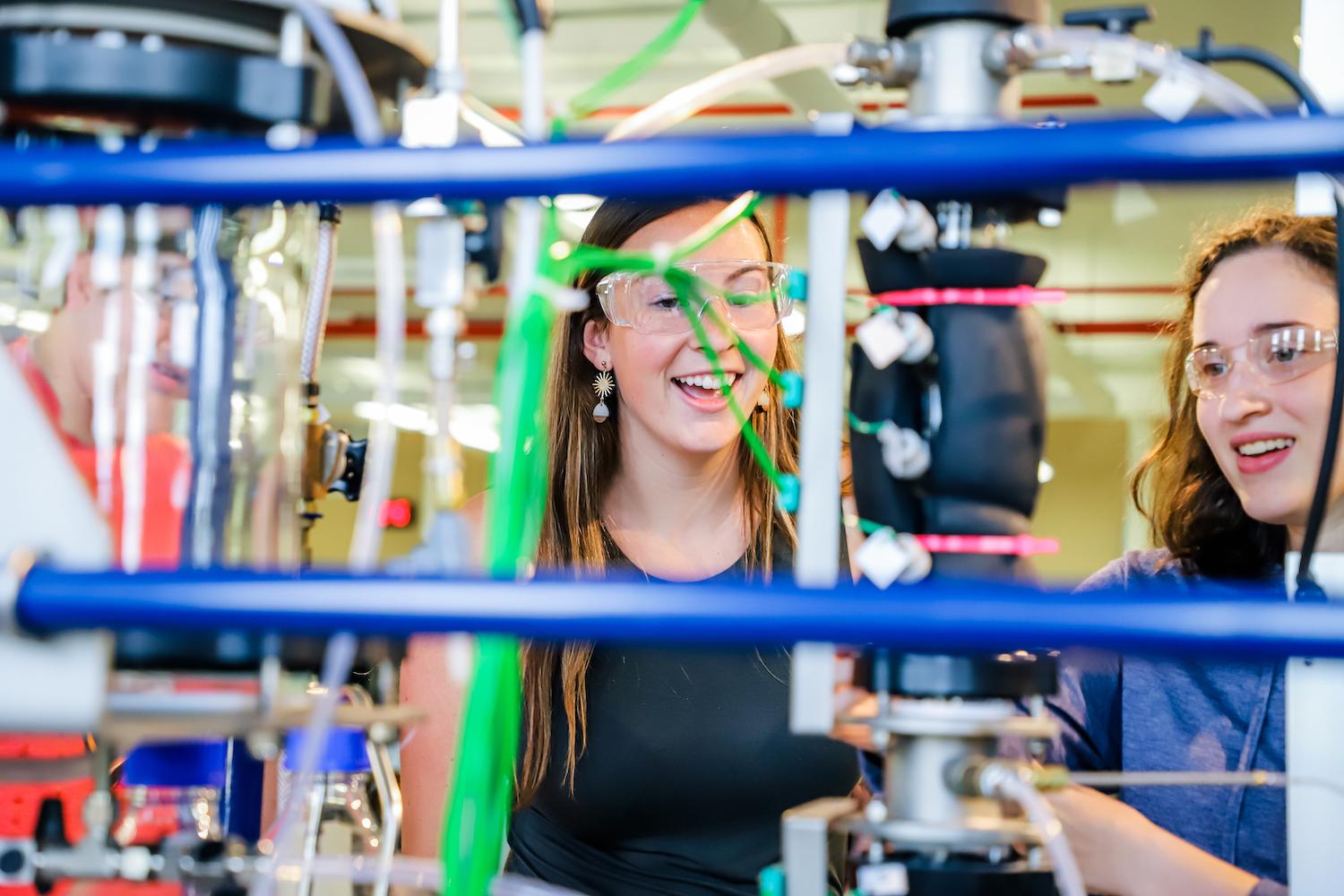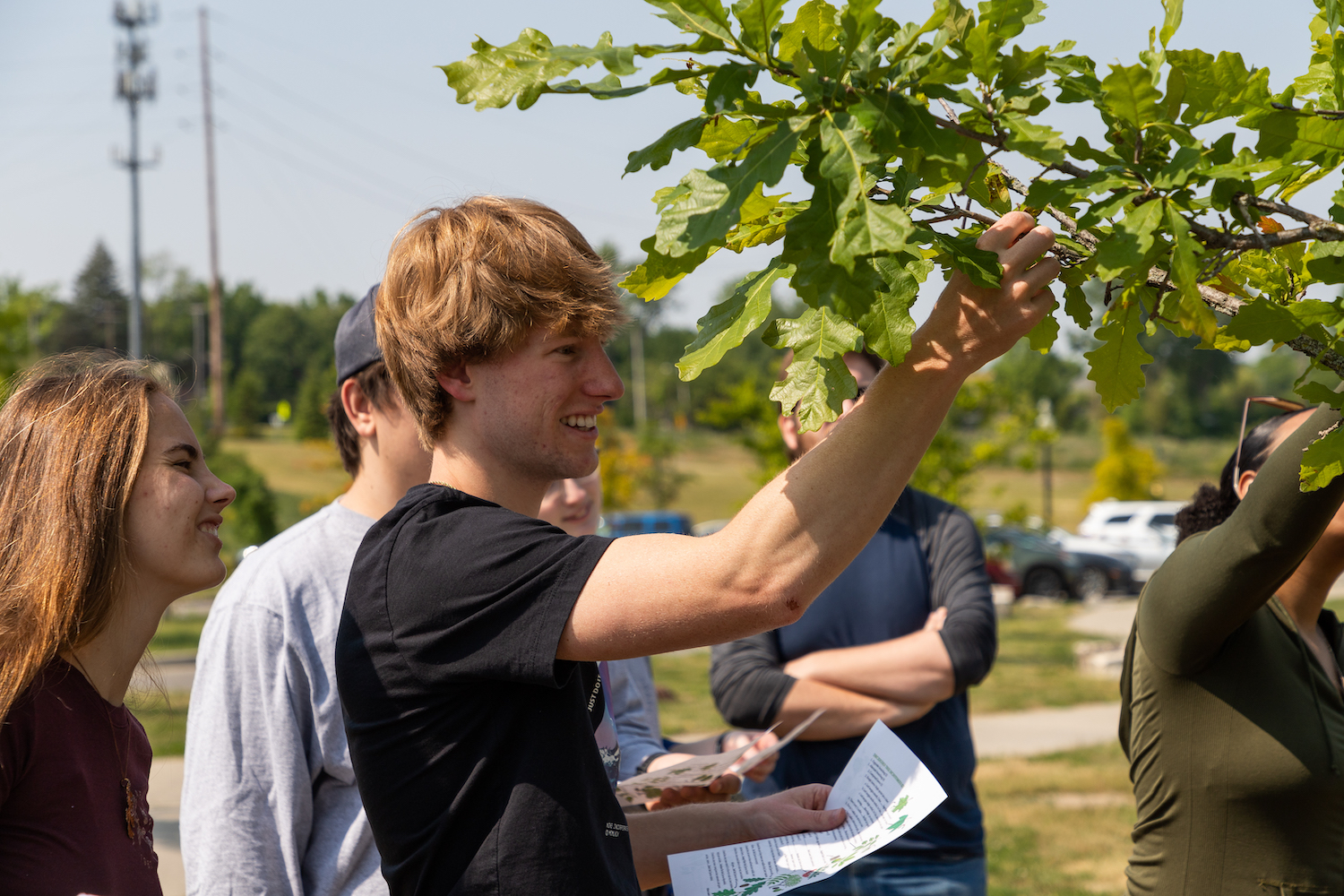
University Grows Available Minors with Sustainability

“I knew for a while I wanted to work in the rene wable/alternative energy industry, but I didn’t feel like I had that opportunity prior to this minor. The Sustainability minor completely opens that door for me to enter the energy transition sector.”
wable/alternative energy industry, but I didn’t feel like I had that opportunity prior to this minor. The Sustainability minor completely opens that door for me to enter the energy transition sector.”
That’s how Amber McInerney ’24 feels. And that’s why she chose to minor in Sustainability.
“Climate change has become a real threat to everything we know here on Earth, our only home,” she said. “Since we are only beginning to explore how to heal the planet, engineers with sustainability knowledge and background are crucial to the energy transition sector.”
Sustainability is one of two new minors, both interdisciplinary, Kettering introduced this year.
“What makes this exciting is the connection between social science, humanities and technical solutions,” said Dr. Babak Elahi, Dean of the College of Sciences and Liberal Arts. “To be innovative with values-based solutions.”
The  multidisciplinary curriculum includes courses in biology, chemistry, chemical engineering, mechatronics, electrical engineering, history, literature, philosophy and social science.
multidisciplinary curriculum includes courses in biology, chemistry, chemical engineering, mechatronics, electrical engineering, history, literature, philosophy and social science.
Dr. Susan Farhat, Chemical Engineering Department Head and Associate Professor, echoed Elahi’s sentiments.
“Students studying sustainability from this type of multidisciplinary approach will be equipped with the mindset necessary to address issues like climate change, depletion of natural resources, and environmental degradation in their careers,” she said. “As an example, in the development of materials like batteries or semiconductors, with the limited availability of natural resources, future engineers will need to design new sustainable materials, develop smart manufacturing with minimal waste and incorporate recycling practices to recover and reuse elements of these devices.”
As industries continue to move toward sustainable manufacturing practices and materials, Elahi said it’s the ideal time for the University to add this minor.
That’s an observation McInerney also made when considering the minor.
“I chose Sustainability as a minor to both take courses that are related to sustainability itself and make my degree stand out compared to other engineers with the same degree title,” she said.
Her favorite Sustainability class so far has been Hybrid Electric Vehicle Propulsion.
“Since I co-op at an electric vehicle manufacturer, it was fascinating to learn about the inner workings of items I’ve already seen,” said McInerney, who is majoring in Chemical and Mechanical Engineering.
After graduation, she plans to work in the energy transition field. Currently, she co-ops at Rivian, an electric vehicle manufacturer and automotive technology company, working in failure analysis investigating failures from the field and throughout product development.
“I haven’t decided if I want to pursue researching new renewable sources or help people and/or businesses transition from fossil fuel sources to renewable/alternative energy sources,” McInerney said.
No matter where she ends up, McInerney feels this minor positions her for success and to be part of the solution.
“Earth needs more brilliant minds to help tackle the climate crisis,” she said, “and when more of us explore the realm of sustainability together, we will help our world grow.”










